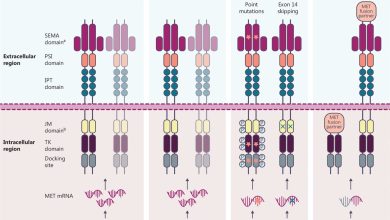Demystifying Medicare Billing for Psychiatric Services: A Comprehensive Guide

The provision of psychiatric services plays a vital role in addressing the mental health needs of Medicare beneficiaries. As the aging population grows and mental health awareness increases, understanding the Medicare billing process for psychiatric services becomes essential for both healthcare providers and patients. This article aims to provide an in-depth guide to Medicare billing for psychiatric services, including coverage, coding, documentation requirements, and important considerations for efficient reimbursement.
Medicare Coverage for Psychiatric Services:
Medicare provides coverage for a range of psychiatric services, including diagnostic assessments, therapy, medication management, and other necessary treatments. The two primary Medicare programs, Original Medicare (Part A and Part B) and Medicare Advantage (Part C), offer different coverage options for psychiatric care. Original Medicare covers outpatient mental health services under Part B, while Part C plans, provided by private insurance companies, may have their own specific coverage rules.
Psychiatric Services Coding:
Accurate coding is crucial for successful Medicare billing. Psychiatric services utilize the Current Procedural Terminology (CPT) codes and Healthcare Common Procedure Coding System (HCPCS) codes. Commonly used CPT codes for psychiatric services include:
Initial Evaluation and Assessment:
- 90791: Psychiatric diagnostic evaluation (including history, examination, and formulation of a diagnosis).
Psychotherapy:
- 90832: Individual psychotherapy, 30 minutes.
- 90834: Individual psychotherapy, 45 minutes.
- 90837: Individual psychotherapy, 60 minutes.
Medication Management:
- 99212-99215: Evaluation and Management (E/M) codes for medication management visits.
Group Therapy:
- 90853: Group psychotherapy.
Documentation Requirements:
Accurate and comprehensive documentation is essential for Medicare billing. The following elements should be included in the medical record:
- Psychiatric Diagnosis:
A clearly documented psychiatric diagnosis justifying the necessity of the services provided.
- Treatment Plan:
A treatment plan outlining the specific goals, objectives, and interventions to address the diagnosed condition.
- Progress Notes:
Timely and detailed progress notes documenting the services provided, patient’s response, and any changes in the treatment plan.
- Time-Based Documentation:
For time-based services (e.g., psychotherapy), documentation should include the start and end times of the session, the total time spent, and the activities performed.
Medicare Reimbursement Considerations:
To ensure proper reimbursement for psychiatric services, several factors should be considered:
- Participating vs. Non-Participating Providers:
Participating providers accept Medicare’s approved amount as full payment, while non-participating providers can charge slightly higher fees. It is essential to determine the provider’s participation status and its impact on reimbursement.
- Medicare Fee Schedule:
Medicare sets reimbursement rates for different psychiatric services based on the Medicare Physician Fee Schedule (MPFS). Understanding the fee schedule and any updates or changes is crucial for accurate billing.
- Advance Beneficiary Notice (ABN):
If services are believed to be non-covered or may not meet medical necessity requirements, an ABN should be provided to the patient, explaining the potential costs that may be incurred.
- Billing Modifiers:
Appropriate use of modifiers, such as GT (via interactive audio and video telecommunications systems) and 95 (synchronous telemedicine service), is necessary when providing services through telehealth or telemedicine.
Tips for Efficient Medicare Billing
Efficient Medicare billing is crucial for healthcare providers to ensure timely and accurate reimbursement for their services. Here are some tips to enhance the efficiency of Medicare billing for psychiatric services:
Stay Updated with Medicare Guidelines:
Regularly review and stay updated with the latest Medicare guidelines, coverage policies, and billing requirements specific to psychiatric services. Medicare updates its policies and fee schedules periodically, so it’s essential to be aware of any changes that may impact billing.
Understand Coverage and Medical Necessity:
Familiarize yourself with Medicare’s coverage policies for psychiatric services. Understand the criteria for medical necessity, including documentation requirements for different services. Ensure that the services provided align with Medicare’s coverage guidelines to avoid denials or delays in reimbursement.
Accurate Coding:
Code services accurately using the appropriate CPT and HCPCS codes for psychiatric services. Familiarize yourself with the code descriptions, guidelines, and any specific coding instructions provided by Medicare. Incorrect coding can lead to claim denials or underpayment.
Comprehensive Documentation:
Maintain thorough and detailed documentation of all psychiatric services provided. Ensure that the medical records include relevant patient information, psychiatric diagnosis, treatment plan, progress notes, and any additional supporting documentation as required by Medicare. Clear and comprehensive documentation supports the medical necessity of services and facilitates accurate billing.
Time-Based Services Documentation:
For time-based services like psychotherapy, ensure accurate documentation of the start and end times of each session, as well as the total time spent. Documentation should also include the activities performed during the session and the specific goals addressed.
Utilize Electronic Health Records (EHR):
Implement an electronic health records system that supports Medicare billing requirements and facilitates efficient documentation. EHR systems can help streamline billing processes, reduce errors, and provide easy access to patient information and treatment history.
Regularly Review and Audit Claims:
Conduct regular reviews and audits of claims submitted to Medicare. This helps identify any potential billing errors, inaccuracies, or omissions that could impact reimbursement. Promptly address and correct any identified issues to avoid claim denials or payment delays.
Utilize Electronic Claims Submission:
Submit claims electronically whenever possible. Electronic claims submission expedites the billing process, reduces paperwork, and minimizes the risk of errors associated with manual processing. It also enables faster reimbursement turnaround times.
Seek Expert Advice:
Consult with billing and coding experts or professional organizations specializing in Medicare billing for psychiatric services. They can provide guidance, answer specific questions, and offer assistance in navigating complex billing scenarios.
Maintain Communication with Medicare:
Stay in communication with Medicare and its representatives to address any questions, concerns, or issues related to billing. This can help resolve billing inquiries, clarify coverage policies, and ensure smooth reimbursement processes.
Conclusion
Effectively navigating Medicare billing for psychiatric services is essential for both healthcare providers and Medicare beneficiaries. Understanding the coverage, coding, documentation requirements, and reimbursement considerations can help ensure accurate billing and efficient reimbursement. Providers should stay updated with the latest Medicare guidelines, consult Medicare resources, and consider seeking expert advice to optimize their billing practices and provide quality psychiatric care to Medicare beneficiaries.








